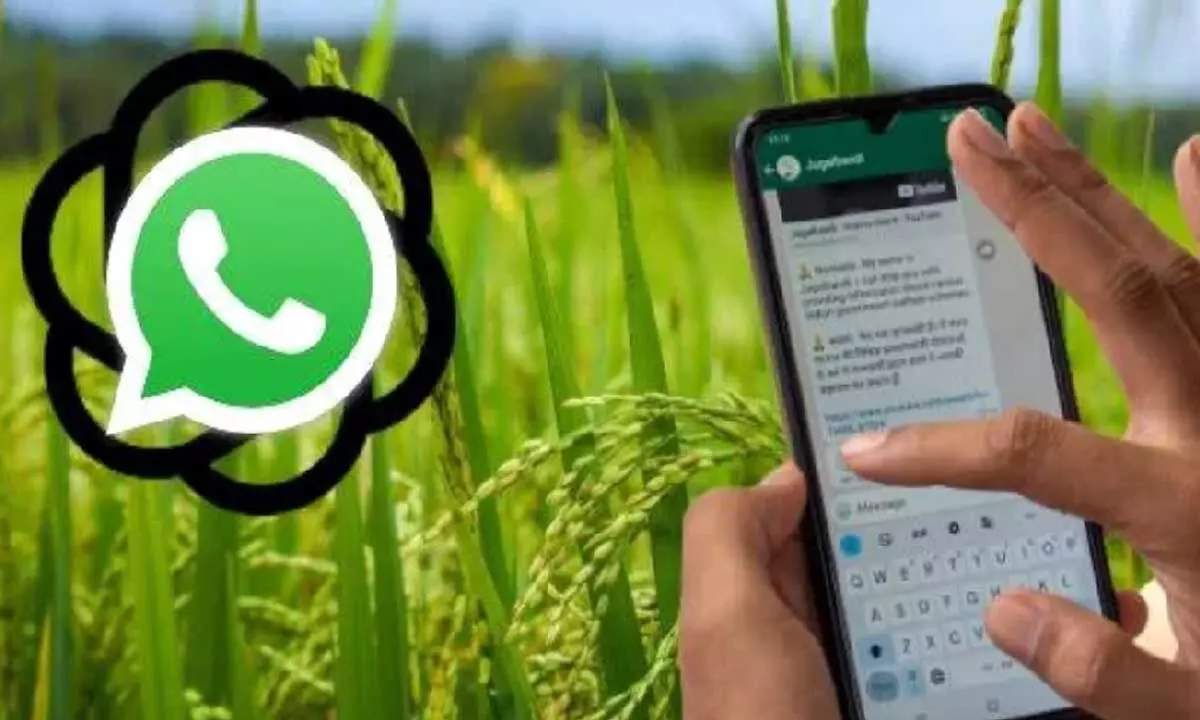Jugalbandi chatbot will be a boon for farmers
Its AI assistant is powered by AI4Bharat and MS Azure OpenAI Service
image for illustrative purpose

The Jugalbandi AI assistant is powered by language models from AI4Bharat and reasoning models from Microsoft Azure OpenAI Service. It is accessed through the mobile messaging system WhatsApp, which is widely used in India, and the duet in this case is the conversation between the user and the chatbot
Microsoft, along with AI4Bharat at the Indian Institute of Technology Madras, has created a new generative AI-driven chatbot that is helping Indian farmers’ access government assistance on their mobile devices.
Called Jugalbandi, the chatbot can understand questions in multiple languages, whether spoken or typewritten. It retrieves information on relevant programmes - usually written in English - and relays it back in the local language.
While the Jugalbandi chatbot is still new, it could one day offer all Indians easy access to information in the local language through a mobile phone, instead of having to head to the local community service centre and stand in line just to get basic information.
"We saw this Jugalbandi as a kind of 'chatbot plus plus' because it's like a personalised agent," said Abhigyan Raman, a project officer at AI4Bharat, an open-source language AI centre based at IIT Madras.
"It understands your exact problem in your language and then tries to deliver the right information quite reliably, even if that exists in some other language in a database somewhere," Raman added.
Jugalbandi was introduced to villagers in Biwan, Haryana, in early April. It has expanded to cover 10 of India's 22 official languages and 171 of a total of approximately 20,000 government programmes, according to Smita Gupta, a lawyer who works for OpenNyAI, a collaborative whose mission is to bring greater access to law and justice through AI. It is one of several groups working on the chatbot.
The Jugalbandi AI assistant is powered by language models from AI4Bharat and reasoning models from Microsoft Azure OpenAI Service. It is accessed through the mobile messaging system WhatsApp, which is widely used in India, and the duet in this case is the conversation between the user and the chatbot.
This is how it works: A villager sends a text or audio message to a WhatsApp number, which initiates the Jugalbandi bot. That is transcribed to text using the AI4Bharat speech recognition model. That, in turn, is translated to English by the Bhashini translation model trained by AI4Bharat. Based on the prompt, Azure OpenAI Service's model retrieves information on the relevant government scheme. The answer is translated to Hindi. That is then synthesised with the AI4Bharat text-to-speech model and sent back to WhatsApp - and the villager's ear.
The central government launched Bhashini to provide language solutions as digital public goods last July.
Research groups like the Indian Institutes of Technology, the International Institute of Information Technology and the Centre for Development of Advanced Computing are all experimenting to augment the Bhashini platform.
AI4Bharat is one such research group. It has received funding from Nilekani Philanthropies, started by the co-founder of software giant Infosys Nandan Nilekani and his wife Rohini, as well as from Microsoft.
Pratyush Kumar, co-principal investigator at AI4Bharat and a principal researcher at Microsoft Research India, said the team initially explored how to translate legal judgments, working with the Supreme Court. They also worked with schools and colleges to transcribe videos and add subtitles, which can help children learn more effectively.
At the same time, organisations like OpenNyAI were thinking of applications on the ground. "We brainstormed a bit," said Kumar. One of the results was Jugalbandi.
Jugalbandi ‘can really scale a lot of our work’, said Aaditeshwar Seth, co-founder of Gram Vaani.

